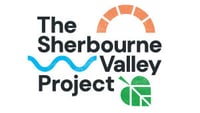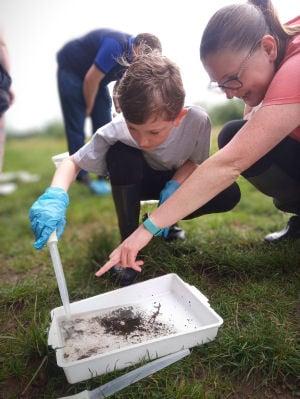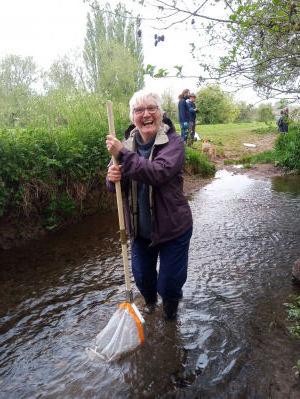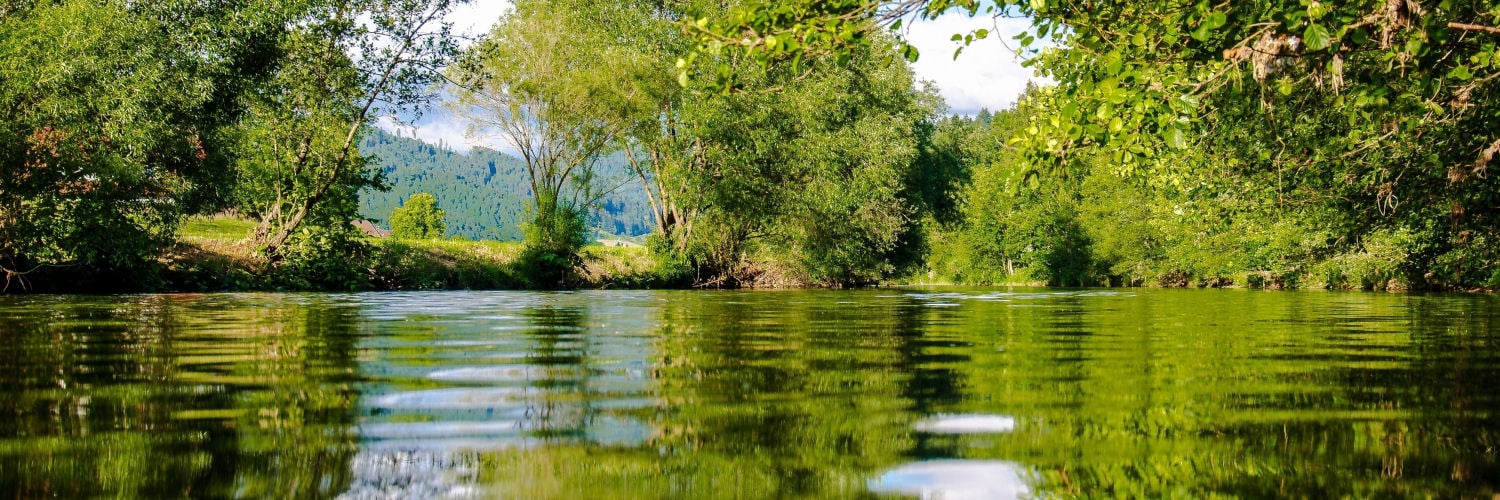 |
Jennifer Tabb, Education/Training Officer for Sherbourne Valley Project, Warwickshire Wildlife Trust. |
When over 30% of teachers tell us that behaviour in lessons has worsened post Covid (source) and with more pupils than ever seeking help for their mental health, the evidence from the Wildlife Trusts research with ICL about the benefits of integrating nature into schools could not be more pertinent. Moreover, it is also clear that our teenagers have a real interest in the environment. According to 2022 Government statistics, 81% of children want to do more for the environment. Those government statistics additionally found a correlation between time spent in nature and lower anxiety rates. Getting our teenagers outside and connected with nature has therefore never been more important.

The introduction of the natural history GCSE is without doubt one of the most important recent changes in the mainstream secondary curriculum – we know from many sources that our children are becoming more nature deprived over time, and yet there is solid evidence that being in nature is good for their physical and mental health. From my own experience over nearly 2 decades teaching in secondary schools there is real enthusiasm for the GCSE and a recognition that qualifications need to update. But alongside that is the fact that in their current economic circumstances, schools may face struggles to find the money, staff and time to feel confident in delivering a new GCSE.
The new GCSE will therefore come with new and exciting opportunities for lots of organisations to work collaboratively with schools to help in delivering the course in ways we possibly never have done before. As we move towards the new GCSE, the sharing of knowledge and skills from other sectors towards schools is going to be of vital importance. Supporting time-stretched teachers and cash-strapped schools to feel confident in delivering the requisite knowledge and skills is an aspect many organisations all around the UK will be able to help with, and I am hope they will do so with gusto, because it represents a huge opportunity.
 At the Sherbourne Valley project, we have been trying to look at overcoming some of the barriers which teachers and schools may find to outdoor learning. We are a project which is part of Warwickshire Wildlife Trust and have been fortunate enough to secure much of our funding from the National Lottery. Some of this money is being used this to help both primary and secondary school students within our catchment in urban Coventry to find out more about their local river, what lives there and how they can help local wildlife.
At the Sherbourne Valley project, we have been trying to look at overcoming some of the barriers which teachers and schools may find to outdoor learning. We are a project which is part of Warwickshire Wildlife Trust and have been fortunate enough to secure much of our funding from the National Lottery. Some of this money is being used this to help both primary and secondary school students within our catchment in urban Coventry to find out more about their local river, what lives there and how they can help local wildlife.
We have used some of our education budget to consult local schools about what they would like/need and put together loan boxes which schools can borrow from us. They contain sets of fieldwork equipment and come with a few options to choose from. There are Riverfly kits for a more river ecology focus, and pure geography boxes which provide kit necessary to complete a study of river morphology, as well as other alternatives available. The provision of these boxes reduces some of the budgetary worries and constraints on school departments, which can find the cost of equipment prohibitive. We can also loan wellies to schools, to provide the opportunity for students who may not otherwise be able to join in to access the full joy of studying the river close up.
Alongside the loan boxes, we are developing a series of teacher CPD sessions so that after training, staff are upskilled and can then deliver field-based work using the loan boxes. The CPD will consist of face-to-face training, as well as video based and online resources to help school staff with studying the Sherbourne and its surrounds.
Sharing knowledge, training teachers, and helping to embed the field aspects of the course will hopefully mean that more teachers in the area will feel able to deliver the new GCSE. And as they do so, we will look to provide sessions which compliment the curriculum. This may come in the form of providing visits or trips, written or video-based case studies. There are so many aspects of the project that could provide locally set case study context for students: our ‘stage zero’ restoration of the river in one location back into its original channel, having been diverted in the 19th century; the natural flood management techniques used in the upper catchment; or the numerous river restoration works, and their resulting impact on biodiversity.
As the GCSE course moves into delivery, it is of vital importance that organisations work together to provide local context for the students, and the staff who will teach it. Each school will value having concepts and case studies embedded into a local context, and invaluable connections and relationships can be forged with both staff and students. Over the next 3 years we are employing trainees for the Sherbourne Valley Project, and hopefully in the future the Natural History GCSE will give our teenagers a glimpse into the world of working for nature and make it easier for them to pursue a variety of these potential career paths.
The Natural History GCSE offers us an unparalleled opportunity for schools, local and national organisations to work more closely together for the benefit of our children and our planet. As we do so, we can help more students to become connected to nature, and benefit not just our wildlife but themselves too. Just as we are doing in Coventry, Wildlife Trusts across the UK will be ready to be there to support as the GCSE becomes a reality by helping train school staff and providing a multitude of ways to connect adults and teenagers with nature.
Making the most of these opportunities is an exciting prospect indeed.
Jen Tabb
Jen Tabb is the Education & Training Officer for the Sherbourne Valley Project, Warwickshire Wildlife Trust. She spent nearly 20 years as a secondary school Geography teacher and examiner.
Keep up to date with our proposed GCSE in Natural History and other Cambridge OCR Natural History news by signing up our email newsletter and updates. You can read back issues of our Natural History newsletter here.

